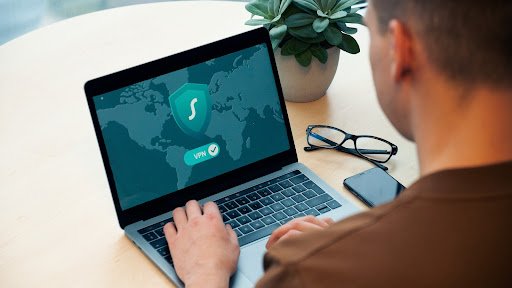Do you know if you give away your personal information while browsing the web?
Unfortunately, even without knowing, we all do.
Your actions, location, preferences, etc. can all be tracked.
In fact. sharing links just 30 times on social media provides a 50% chance of tracing your name and social media profiles/s.
And who didn’t share that cute cat with their friends, right?
Various parties would collect your data so they can send out targeted advertising and content to try to influence your behavior and views.
But nobody wants to be watched or tracked. So, how do you prevent that?
The solution is – anonymous browsing. And here’s more about it.
What’s the difference between “private” & “anonymous” browsing?
Private browsing, also called “incognito mode”, is not the same as anonymous browsing.
Private browsing instructs your browser to delete cookies and your history when you close it. However, it doesn’t safeguard your information or IP address.
What does it mean?
In simple words, you aren’t ‘hidden’, and you still leave a trail.
On the other hand, anonymous browsing allows you to surf the net without leaving any trace.
Organizations and cyber criminals can’t see your IP address or any other sensitive information. They also can’t track where you go and what you do.
And that’s how you protect yourself.
Ways you can be tracked online
There are several ways that your online movements can be followed. This usually happens via:
- Cookies – text files stored on websites that retain visitors’ information. You can delete cookies as you leave a website.
- Cross-site tracking – when your browsing history is tracked across/between websites.
- Your IP address – that can also be used to track what sites you visit.
- As you browse, your account can be tracked, and the data you supplied when you created the online account can be obtained.
- Some websites download an ‘invisible’ graphic to your device. It allows entities to use pixel tracking to follow you and gather data.
While changing browser settings can prevent some of these, others require more sophisticated measures.
What do you need to do to browse anonymously?
According to a study, 64% of Americans want greater online protection.
The problem is they want their browser to offer it. We need to be more active to achieve online anonymity. Here’s how:
#1. Use a VPN for online protection
For instance, a VPN for Windows covers all traffic types, not just online activity. Data encryption protocols hide and protect your IP address, location, and activity logs.
Without the decryption cipher/algorithm, your data can’t be accessed, and you can’t be tracked.
On the downside, trustworthy VPNs are only available through paid subscriptions.
#2. Use the Tor Browser or a Tor over a VPN
The Tor (The Onion Routing project) is a global browser. It ensures privacy via an encrypted protocol and routing all traffic through multiple servers.
This network of servers makes tracing where connections come from impossible and renders users invisible.
Unfortunately, it’s slow. Combining a VPN with Tor is ideal.
#3. Make use of private browsers
Some browsers may be popular, but they aren’t concerned with your security. Conversely, private browsers automatically delete your browsing history, block malware, and reject cookies.
Best-rated ones include Tor, Firefox, and Brave.
These browsers also aren’t 100% safe, but you can change settings to increase safety.
#4. Log out of your Google account
Google is an excellent browser, but you are encouraged to create an account.
Why?
Google wants to find out about you, obtain your address, and follow your online activities.
The result is usually only unsolicited ads, but if you take the time to log out of your Google account before you browse you can avoid this.
#5. Use private search engines
There are alternatives to Google, Bing, and other engines that track you online. These options include DuckDuckGo and Startpage.
Other similar browsers are available and the best rated are all free. Yes, there is a ‘price’ to pay for the security.
Firstly, you’ll have to work harder to find the information you want. Secondly, there are fewer services offered than with, say, Google.
The benefits of anonymous browsing
The core advantage of anonymous browsing is that you can move around without leaving a trail.
As a result, you can:
- Protect your personal data.
- Browse without being tracked by third parties.
- Express your opinion freely.
- Prevent cybercriminals from gaining access to your sensitive information.
These protections are crucial and not difficult to acquire.
Wrapping up
Although you can’t achieve complete anonymity, you can do a lot to avoid leaving an easy-to-track trail online.
You can protect your identity and data to a large degree by using a VPN or a Tor over a VPN, making use of private browsers and search engines, and logging out of Google before browsing.
By doing these, you’ll prevent third parties from storing and using your online habits for their purposes.
So, take the necessary steps and stay hidden and safe online!
